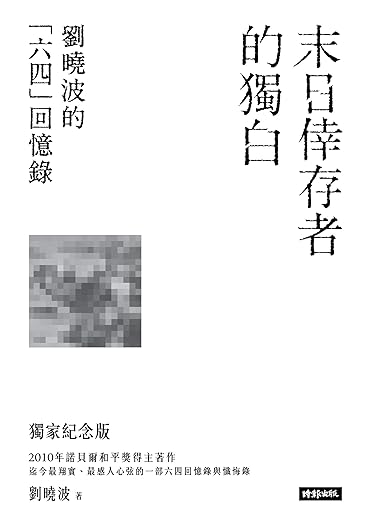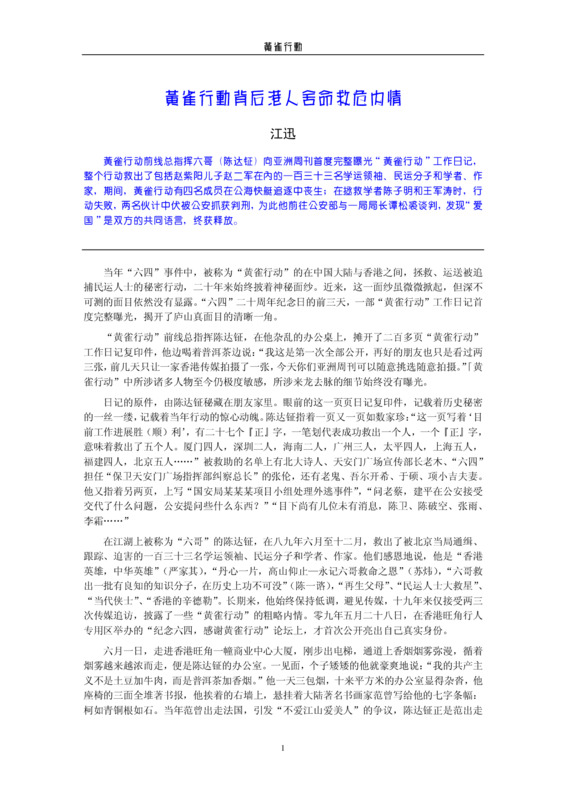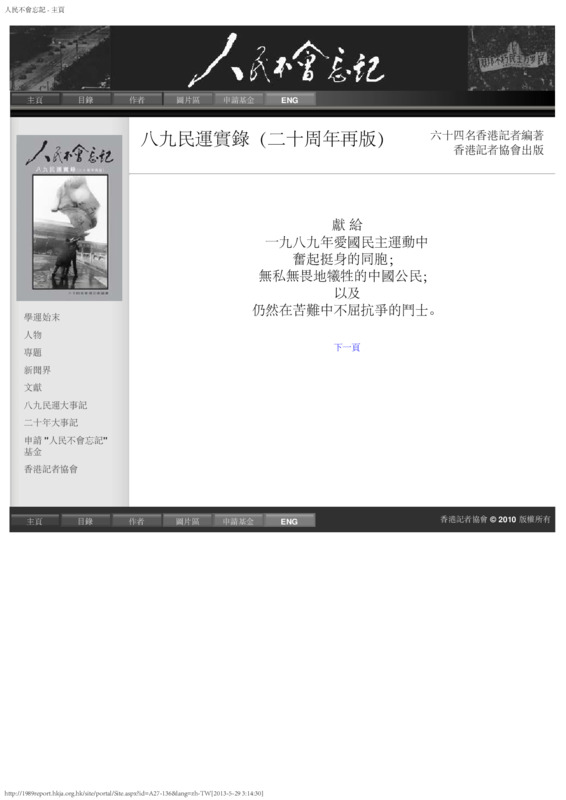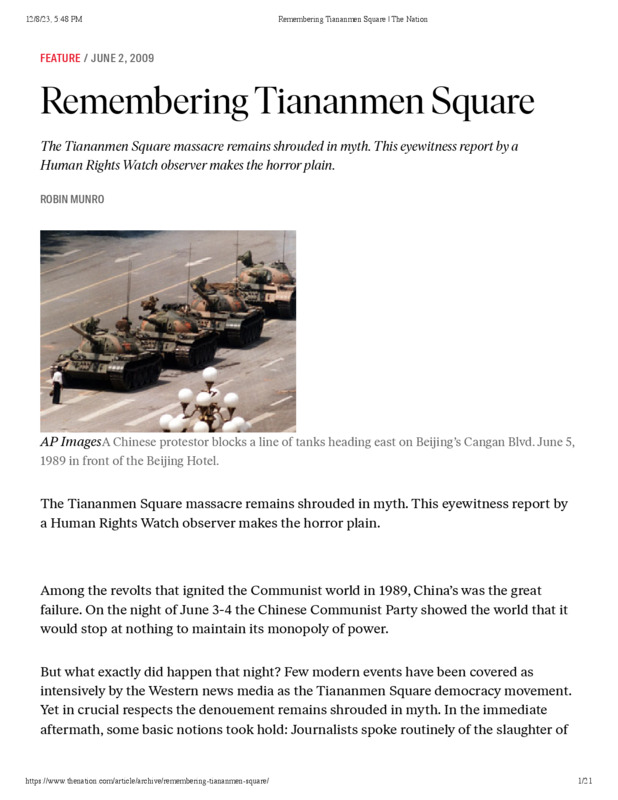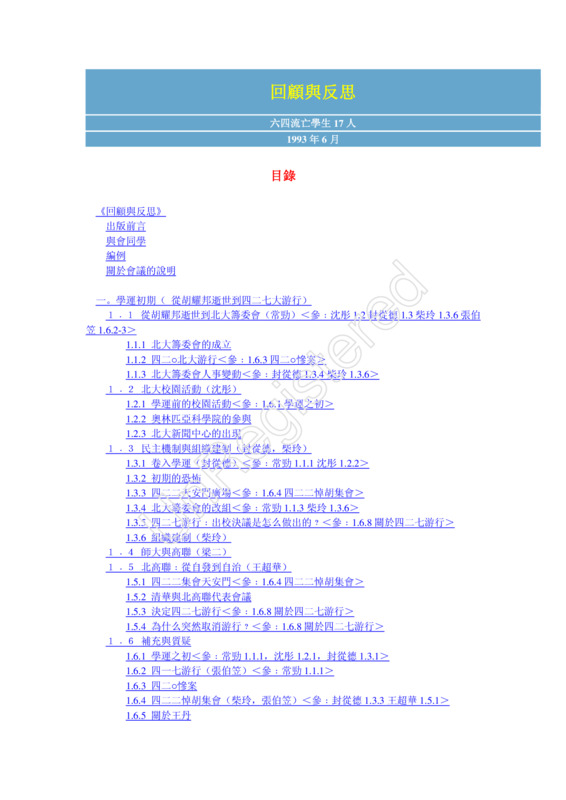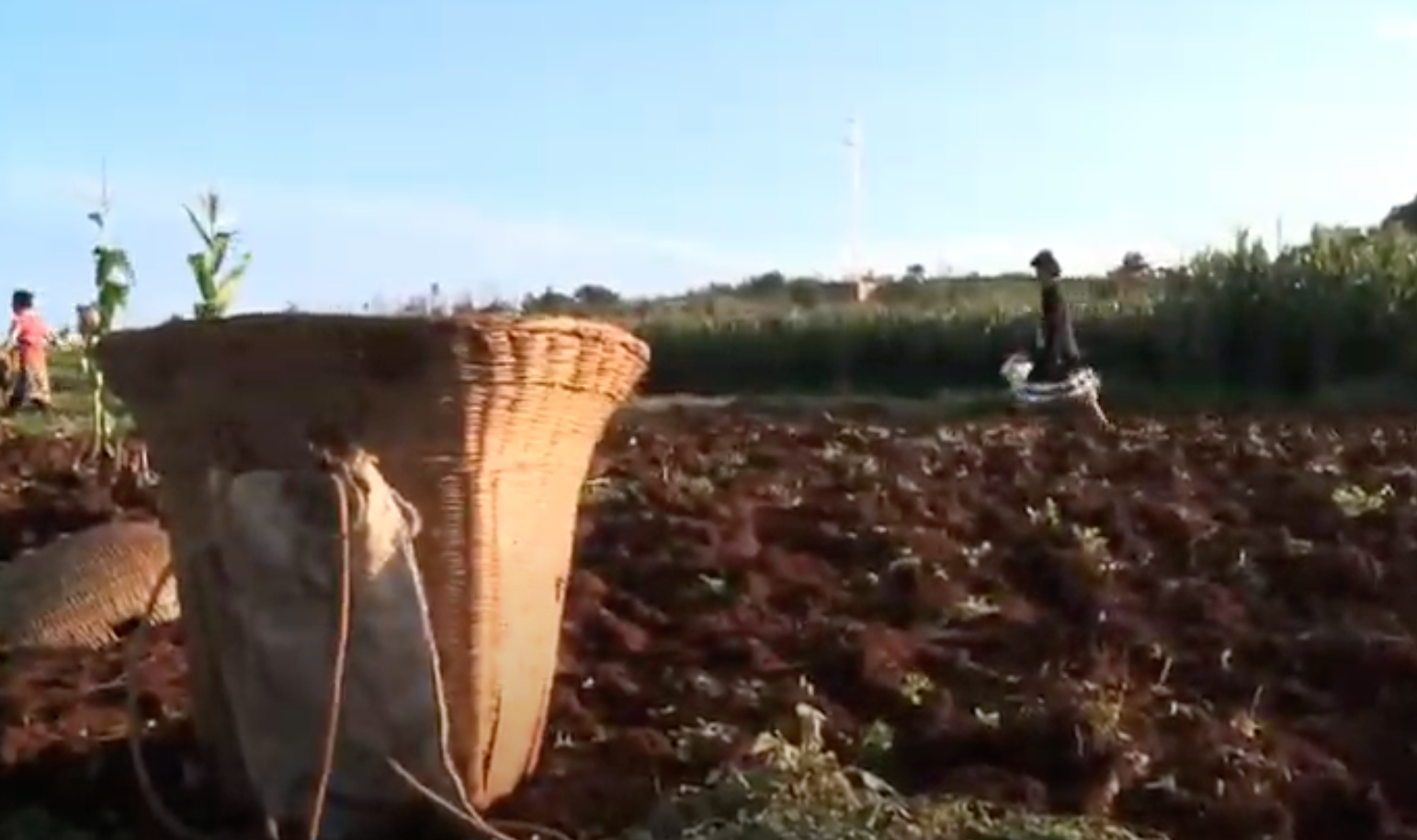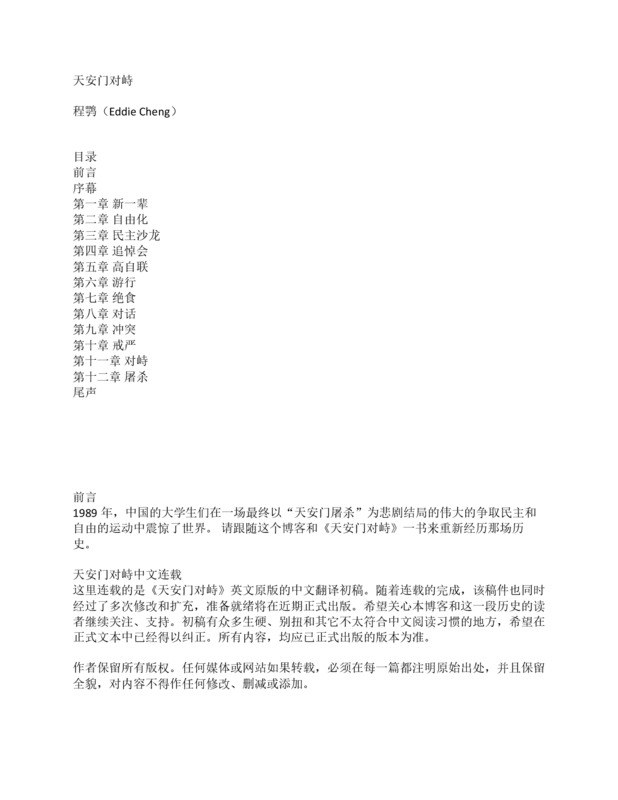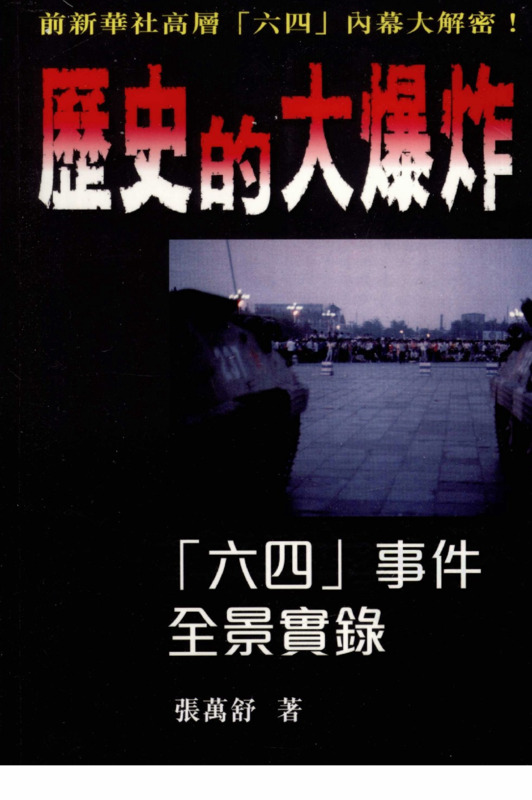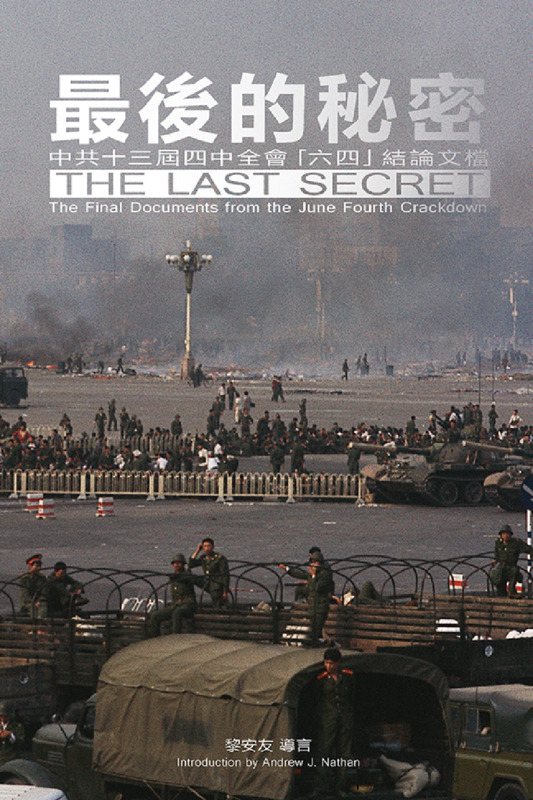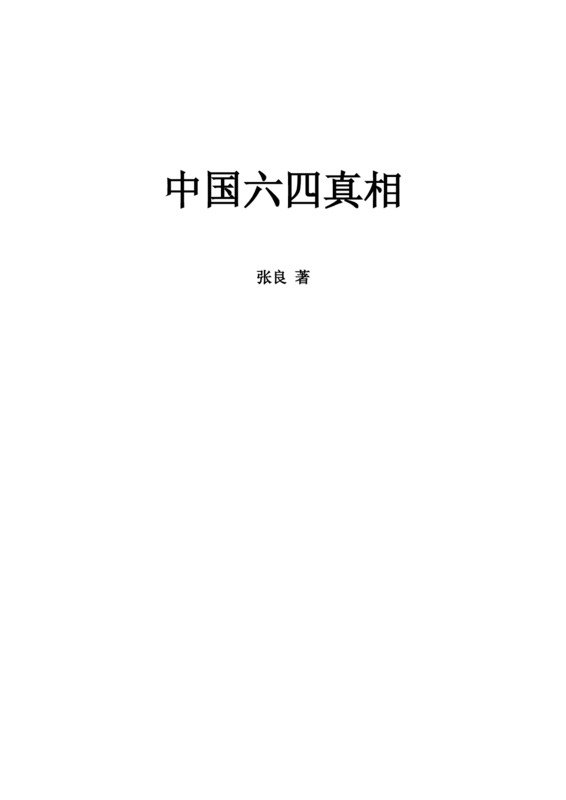Explore the collection
Showing 46 items in the collection
46 items
Book
Living Monument in the Square: June 4 Bloodshed through the Eyes of a Hong Kong Woman Reporter
The author of this book was a reporter for "Sing Tao Daily" and was stationed in Beijing at the end of April 1989 to cover the democracy movement. The book is divided into six main parts: Square Facts records the course of the 1989 democracy movement, from the author's visit to Beijing in April to the early morning of June 4, when she and the masses were evacuated from Tiananmen Square. The second part concerns post-hijacking memories, which are some of the author's interviews from 1989. The third part concerns the interviews. The author had interviewed 7 student leaders and intellectuals that year. The leaders told her the reasons why they devoted themselves to the student movement. The fourth part is about the rest of the author's life, from June 4 to December 1990. The author has recorded some fragments of her speeches to the secondary school students in Hong Kong. Some of them are sentimental, some of them are confessional, and all of them are sincere and heartfelt. The fifth part is "Twenty Years of Wounds," which is a reminiscence written by the author on the 20th anniversary of June Fourth. The sixth part is about the grassroots of June 4. These grassroots actors have been pretty much forgotten. The author wanted to write a biography of the grassroots of June 4 in order to fill in gaps in history.
Book
Major Events, Tiananmen 1989
The author was a key member of the 1989 pro-democracy movement when he was teaching at the Chinese University of Political Science and Law. After the June 4 massacre, he went into exile. Currently, he has settled in Taiwan, where he teaches a course on the truth of the June Fourth Incident at Soochow University and National Chung Cheng University. Wu Renhua has published several books related to the June Fourth Incident. With a master's degree in Classical Literature from Peking University, he has written a book on June 4 that emphasizes the reliability of the sources of information. This book records the major events that happened every day during the June 4 period (April 15th to June 9th).
Book
Monologue of a Doomsday Survivor: About Me and June 4
购书链接:https://www.kobo.com/hk/zh/ebook/ZoerWPfG8TiqoXIYwvW2iw。
Article
New Evidence Concerning the Authenticity of The Tiananmen Papers
Few books on recent Chinese history have caused such controversy as "The Tiananmen Papers". The book is ostensibly a collection of original documents compiled by Zhang Liang, a pseudonym for someone claiming to be a high-ranking CCP official who leaked the papers. The book’s credibility was aided by it being edited by two well-known western scholars of China, Perry Link, then of Princeton University and now of the University of California, Riverside, as well as Columbia University professor Andrew J. Nathan. An introduction was written by Orville Schell, a well-known writer on China who was then a professor at the University of California, Berkeley.
Almost immediately upon publication, the book was criticized for its unclear provenance, a point aided by Zhang Liang’s anonymity. Most scholars agreed that the papers were a mixture of previously released documents from government offices, which were uncontroversial, and accounts of meetings between senior leaders. The latter came under scrutiny, with some saying that the language appeared stilted or seemed to mix in language used in leaders’ public speeches.
This essay by the well-known Hong Kong publisher Bao Pu points out that since 2004, most people seem to feel that the issue of provenance will never be settled but that the documents are still important historically. Bao critiques this, using books published over the past two decades to update the question of authenticity. In careful language, he further questions key points of the documents, showing that they do not match new material, such as memoirs. Bao's conclusion: the Tiananmen Papers are not documents from the CCP’s archive, which is their claim, but rather works of dubious origin that cannot be used to better understand the events leading up to the massacre of civilians on the night of June 3-4, 1989. The top-secret documents, Bao writes, are a “phantom” that must not be used as building blocks for history.
Article
Operation Yellow Bird
After the bloody suppression of the June 4 Democracy Movement, the Chinese Communist Party went on a massive manhunt for the key figures of the movement. Some Hong Kong people organized a secret channel to help pro-democracy activists escape from the Mainland, codenamed "Operation Yellow Bird." The author of this book, Jiang Xun, is a veteran of the media and describes in detail how the "Yellow Bird Operation" took place.
Book
Pastor Wang Yi's Anthology: Carrying the Cross - A History of Chinese Family Churches
Wang Yi, of Chengdu, Sichuan Province, is a well-known Chinese intellectual who later became a pastor. The Early Rain Reformed Church that he led was one of the most famous unregistered churches in China. The church occupied the floor of an office building in Chengdu and had its own bookstore, seminary, and pre-school. It regularly had services of hundreds of people. Later, the church had internal conflicts, while at the same time Wang became more outspoken in his criticism of the government. In 2018, he criticized Xi Jinping for abolishing term limits and allowing himself to become ruler of China for life. Pastor Wang was sentenced to nine years in prison in 2019.
This book is based on the recordings of Pastor Wang's classes at Early Rain in 2018. The first five chapters were reviewed by Pastor Wang himself, but he was arrested before he could complete the review of the last five chapters. The essays cover key issues that concerned Wang, including the role of the church in China as a city on the hill, the role of the Reform church in China, and the history of unregistered churches in China.
Book
People Will Not Forget:A Chronicle by 64 Hong Kong Reporters
This book published by the Hong Kong Journalists Association, summarizes the June 4 reports of dozens of journalists. The first edition was released in July 1989, and was reprinted on the 20th anniversary of June Fourth.
Book
Prisoner of the State: The Secret Journal of Premier Zhao Ziyang
“The Course of Reform”, a memoir by Zhao Ziyang, former General Secretary of the Central Committee of the Communist Party of China, was published on May 29, 2009 by New Century Press in Hong Kong. Its English translation, “Prisoner of the State: The Secret Journal of Premier Zhao Ziyang” was published on May 13 before that. According to the book's preface, in 1992, Du Guanzheng, an old subordinate of Zhao Ziyang and former director of the State Press and Publication Administration, together with Xiao Hongda, another former high-ranking CCP official, persuaded Zhao Ziyang, who was under house arrest, to organize his experiences into a book.
Purchase link: https://www.kobo.com/hk/zh/ebook/ZoerWPfG8TiqoXIYwvW2iw.
Book
Remembering Tiananmen Square
The author was a Hong Kong-based observer for the international human rights organization Human Rights Watch. Remembering Tiananmen is a long article first published in The Nationmagazine in November 1990. It was written after witnessing the crackdown around the square during the night of June 3 until 4 a.m. the next morning.
Book
Rethinking China's Democracy Movement
Author Hu Ping was involved in the Xidan Democracy Wall movement in the late 1970s and now lives in the United States.
He has successively chaired the pro-democracy publications <i>China Spring</i> and <i>Beijing Spring</i>. This book, published in 1992, analyzes the reasons for the failure of the June Fourth Movement and summarizes the lessons learned. The last two chapters suggest how to continue the pro-democracy movement in the future.
Book
Retrospect and Reflection - 17 Students in Exile on June 4
From July 17 to 24, 1991, seventeen student leaders who had participated in and led the 1989 student movement and later went into exile held a "Seminar on Historical Review and Reflection on the 1989 Student Movement" in Paris, France, to review and reflect on this great democracy movement in modern Chinese history. This book is organized according to the audio recordings of the speeches made at the seminar. It covers the following topics: the Peking University School Society Fever in 1988; the establishment of the Peking University Preparatory Committee; the founding of the Peking University Higher Education Union; the initiation of the hunger strike; the founding of the Hunger Strike Group; the founding of the Dialogue Group; the imposition of martial law; the founding of the Commanding Office of the Defense of Tiananmen Square; the founding of the Joint Meeting of the Capital; the establishment of martial law; the establishment of the Tiananmen Square Defense Command; the establishment of the Joint Meeting of Various Sectors in the Capital; the retreat from Tiananmen Square; the overseas student movement, etc. It includes rare historical material.
Book
Science, Democracy, Rationality: Xu Liangying's Anthology
Chinese intellectual Xu Liangying is a scholar of the history of scientific thought and an active warrior in defense of human rights. He weathered China's most extreme political storms and began to speak out again after China opened up slightly in 1977. This book collects his political speeches between 1977-1999. Originally published by Spiegel Publishing in Hong Kong in 2001, the book was later made into a PDF version by Xu Liangying's family in the hope that it would be circulated online to a wider audience.
Book
Sky Burial: The Fate of Tibet
In this book, author Wang Lixiong presents his arguments with a great deal of personal experience and field work. The book covers the history of the Tibetan issue, the current situation, and various aspects. The book was first published by Mirror Books in Hong Kong in 1998, and an updated edition was released in 2009.
Film and Video
Songs of Maidichong Village, The
This film was shot in a village called Maidichong in the mountains of Yunnan Province. The village is inhabited by a community of Miao people who are Christians. 100 years ago, the British missionary, Mr. Burghley, came to this village, fostered the Miao language, and brought faith, education, and medical care to the Miao people. This movie tells this history and how their journey of faith was brutally suppressed during the Cultural Revolution. It also presents the challenges they face today.
Book
Stand off at Tiananmen
This book goes beyond the individual perspective of a memoir to recount the movement from the perspective of the student collective. It focuses on the vivid portrayal of characters and their interactions. As the author puts it, this is the first time that the 1989 pro-democracy movement and the June 4 tragedy are "recounted as a complete and coherent attempt at narrative history." This book was originally written in English and published in 2009 on the 20th anniversary of June Fourth. The author himself later translated it into Chinese and released it on the eve of June 4 this year. The author, Eddie Cheng, was originally a student in the Physics Department of Peking University in the class of '80. He caught up with the election campaign right after he entered the school. Later, he became an important organizer of the student movement, having spearheaded the two campus pro-democracy campaigns of '84 and '85. In 1986, he went to the United States to study abroad. Currently he resides in the US state of Colorado.
The book can be purchased <a href="https://www.amazon.com/dp/0982320302">here</a>.
Book
The Big Bang of History:June Fourth Movement Record
This book was published in Hong Kong in 2009, on the eve of the 20th anniversary of June Fourth. The author, Zhang Wanshu, was the Director of the Domestic News Department of Xinhua News Agency during the June Fourth Incident. This book provides a historical account of the June 4 incident from the unique perspective of the official media, including a lot of insider information. Famous journalist Yang Jijian commented that the book's historical authenticity is beyond doubt, and that it is an indispensable historical document for the study of the June Fourth Incident. In the form of daily events, the book records the situation from April 14th to June 10th, 1989—including the mobilization of 10 armies by the Central Military Commission from the five major military regions, their march to Tiananmen Square along six routes, and the army's entry into the city in disguise, etc. Of particular interest is Zhang Wanshu's citation of Tan Yunhe, then party secretary of the Red Cross Society of China, who said that there were 727 deaths in the June 4 incident—including 713 students and mass deaths and 14 military deaths. This figure is far from the 2,700 recorded by the Red Cross Society of China and has led to much controversy.
Book
The Last Secret : The Final Documents from the June Fourth Crackdown, Introduction by Andrew J. Nathan
The documents in this book come from two high-level meetings of the CCP held after the June 4 Tiananmen Square Incident in 1989, namely, the Sixth Plenary Session of the Sixth Committee of the Beijing Municipal Committee of the CCP and the Fourth Plenary Session of the Thirteenth Central Committee of the Chinese Communist Party (CCP), which was held on June 23rd and 24th at the Beijing West Guest House. The author claims that the documents were copied and kept for many years by an unnamed senior official within the CCP. This set of documents was formed when the CCP made its final conclusions on the June 4 incident. It is also a record of the high-level political operations within the CCP. These documents reveal the ultimate secret of the mechanism by which the Communist Party has always held absolute power. It was published by New Century Press in 2019. Special thanks to Bao Pu, founder of Hong Kong's New Century Press and son of Bao Tong, former political secretary of Zhao Ziyang, for authorizing CUA to share the book.
Book
The Power of Tiananmen:State-Society Relations and the 1989 Beijing Student Movement
<i>The Power of Tiananmen: State-Society Relations and the 1989 Beijing Student Movement</i> is a sociological monograph. It explains the process of the 1989 school movement and interprets the political and economic situation from four perspectives: state legitimacy, ecological environment and mobilization structure, discourse and modes of action, and public opinion. Author Zhao Dingxin interviewed 70 participants in the movement at the time. He also examined many little-known domestic documents. Thus, theory and evidence are closely intertwined.
The book won the 2002 Distinguished Book Award (Collective Action/Social Movements) and the 2001 Distinguished Book Award (Asian and Asian American) from the American Sociological Association.
It is published by the Chinese University of Hong Kong Press.
Book
The Tiananmen Papers/The Truth about June Fourth in China
<i>The Tiananmen Papers </i> is an English-language book based on internal government files on the June 4 incident in China. It was provided by a person under the pseudonym Zhang Liang, translated by Prof. Perry Lin, edited by Prof. Lai An-You, and with a conclusion by Prof. Xia Wei, Dean of the Berkeley School of Journalism. The book was published in January 2001 by the American Public Affairs Press. <i>The Truth about June Fourth in China </i> is the Chinese version of <i>The Tiananmen Papers </i>, published on April 15, 2001 by Der Spiegel Publishing House. The Chinese version retains the deleted contents of the English version and is three times as long as the English version.
Book
Tibet in Agony: Lhasa 1959
Traveling Chinese history scholar Li Jianglin began working on the Tibet issue in 2004. She has traveled to India every year in search of Tibetan refugees, visited 14 Tibetan refugee settlements in India and Nepal, contacted more than 200 exiled Tibetans from the three regions of Tibet, and personally interviewed the Dalai Lama in Dharamsala, the seat of the Tibetan government-in-exile, in 2008. In 2010, Li Jianglin completed her book <i>Lhasa 1959!</i> by drawing on interviews, information searches, and rare historical photographs provided by the Tibetan government in exile, in the hope of reconstructing the little-known history of the Dalai Lama's departure from Tibet in 1959. The book was published by Taiwan's Lianjing Publishing House in 2010 and reprinted in 2016.


